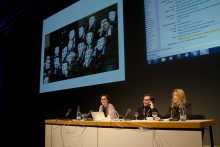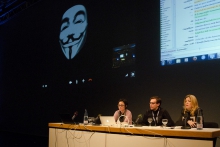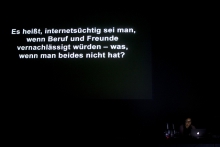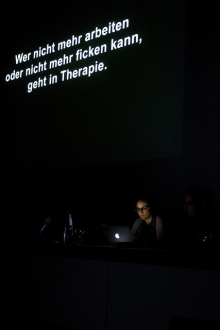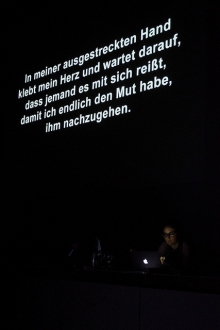Anonymous Codes: Disruption, Virality and the Lulz
Anonymous Codes: Disruption, Virality and the Lulz
in/compatible publics
Panel with Jacob Appelbaum (us), Gabriella Coleman (us), Dana Buchzik (de) and anonymous
Moderated by Tatiana Bazzichelli (it/de)
Chaired by Krystian Woznicki (de/pl)
In the book Pranks! (Re/Search, 1987), V. Vale and Andrea Juno pointed out that pranks, tricks and ludicrous actions are functional to express a continual poetic renewal, using the elements of surprise, irony and social criticism. Since that time the strategy of anonymity, as the critique of a rigid identity, and the creation of a multi-use philosophy of sharing, has been functional in redefining art practice through disruptive interventions, as well as served as a tool to reflect on the meaning of authority. Today the strategy of anonymity is still a vehicle to question the institutional media system and has often plunged it into crises by exposing its bugs and highlighting its vulnerability. But, mixing up with contemporary social media culture, being anonymous means to produce a new aesthetics – new linguistic codes – where poetic images, disruptive strategies (such as trolling and DDoSing) intertwine with multiple possibilities for lulz and pleasure. Is anonymity a tool for distributed and viral political struggle or is it the endless trick of an intangible crowd of pranksters?
Individual Presentation Descriptions
Dana Buchzik (de)
Descriptive text on the panel presentation:
My presentation will deal with anonymity as a healthful intervention. Based on a true incident, the story is told from the perspective of a phobic girl who isn't capable of mingling with people or even leaving the house. After effectless hospital treatments, she finds her way back to life by talking to strangers on the internet. Instead of only exposing her diseased parts, she tells stories about the self she wants to be, using the potential of anonymity to create a healthier self.
(Image: Tim Libert https://timlibert.me/writing/?page_id=6)

